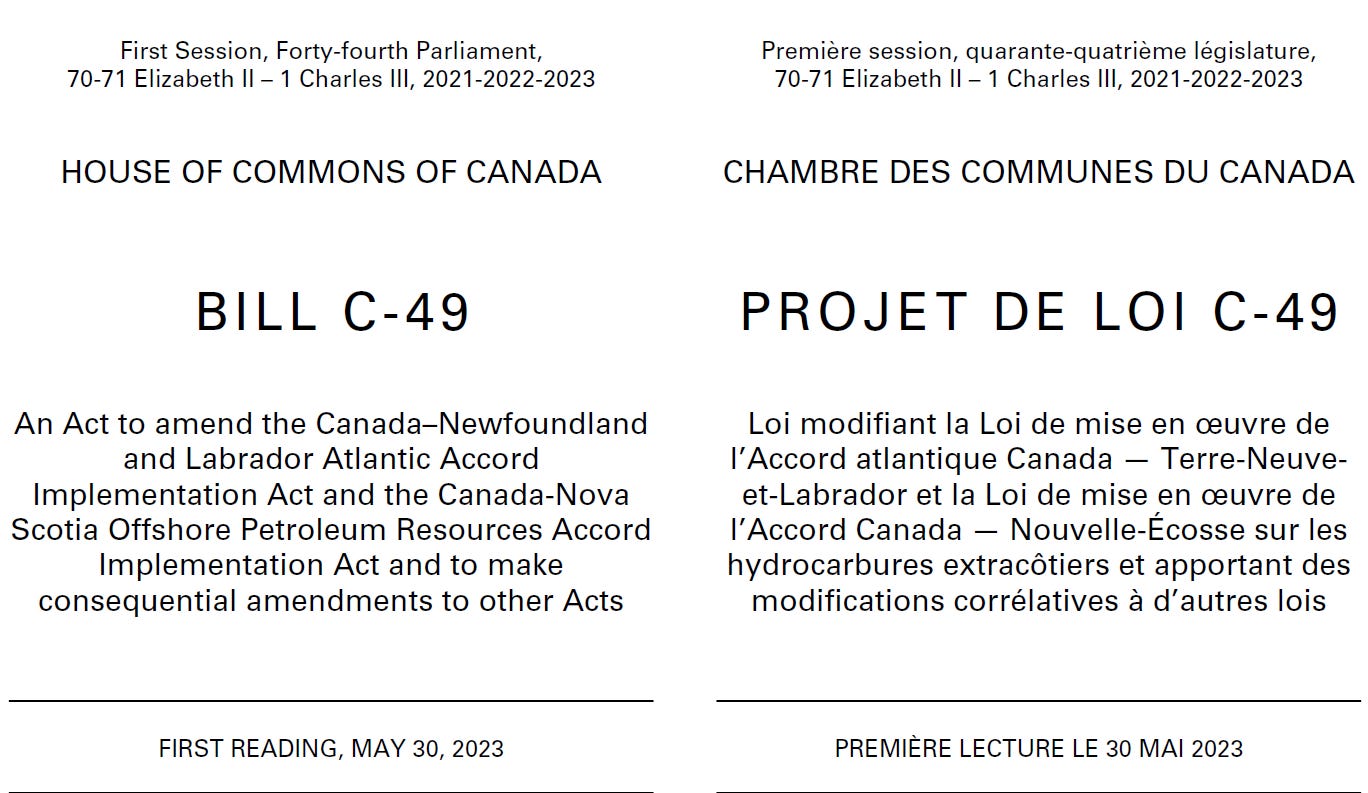Under amendments to the federal Atlantic Accord enabling law contained in Bill C-49, companies will only be able to hold a significant discovery licence for 25 years without developing the discovery.
A significant discovery is one that shows the presence of oil or gas in large enough quantities that it could be commercially developed. A Significant Di…
Keep reading with a 7-day free trial
Subscribe to Bond Papers to keep reading this post and get 7 days of free access to the full post archives.




